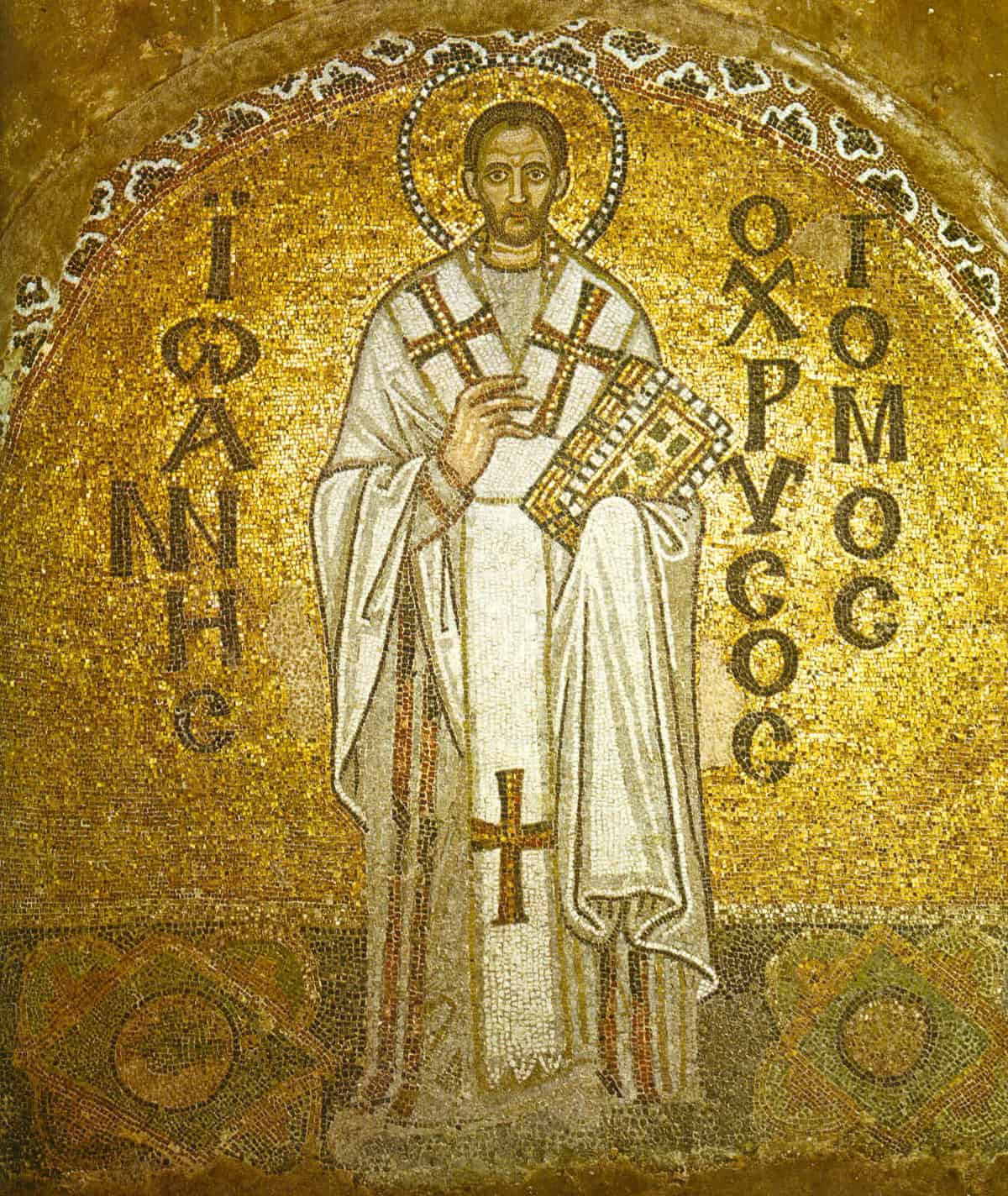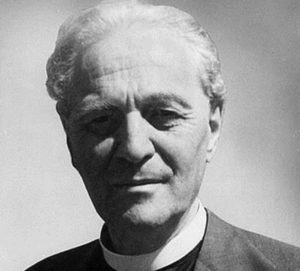
(347 – 407)
In a culture where religious officials were expected to cultivate the rich and powerful, John Chrysostom, patriarch of Constantinople, defied the unspoken rules by constantly crusading against excess on the part of the wealthy and advocating tirelessly for the poor and oppressed. For this he earned the love of the common people and the mistrust of the privileged classes, a mistrust that would lead to exile and an early death.
Chrysostom was born in 347 in Antioch, Syria. His father, a high-ranking military officer, died when he was an infant, and he was raised by his mother, Anthusa, a devout Christian. Antioch was a leading intellectual center of the civilized world, and Chrysostom was given the best education available, studying under Libanius, a highly respected classical rhetorician who was deeply involved in the Emperor Julian’s campaign to revive the old Greek and Roman gods. Impressed with his pupil’s eloquence, Libanius groomed him for a career in law, but the young man became uncomfortable with his mentor’s pagan views and turned instead to studies in line with his Christian upbringing.
Chrysostom’s new teacher was Diodore of Tarsus, who believed in a literal interpretation of Scripture, as opposed to the allegorical method that was popular at the time. Around 375, Chrysostom decided to become a hermit monk and spent the next four years living in isolation in the nearby mountains and then two years alone in a cave. During this latter time, he did not allow himself to lie down, either by day or night, which seriously damaged his internal organs and ultimately forced him to return to the church in Antioch.
Chrysostom was ordained a deacon in 381 and a priest in 386. Over the next decade he gained recognition for his public preaching, which not only reflected the oratorical excellence seen by his old teacher, Libanius, but also was easily understood and applied to daily life by the crowds who came to hear him. In 397 he catapulted to prominence with his handling of a situation in which the citizens of Antioch went on a rampage, mutilating statues of the emperor and his family. His healing sermons led to numerous conversions and averted extreme reprisals by the emperor.
The following year, Chrysostom was elected patriarch of Constantinople, a post he was reluctant to assume because of the privilege that accompanied it. Expected to host lavish gatherings, he instead undertook an outspoken campaign against the misuse of riches on the part of both the aristocracy and the church. On one occasion he went so far as to sell the chalices from the church where he ministered and give the proceeds to the poor. “You make golden chalices,” he chastised, “but fail to offer cups of cold water to the needy. Christ, as a homeless stranger, is wandering around and begging, and instead of receiving Him you make decorations.” He also instituted reforms of the clergy, telling the priests who were enjoying the high life in Constantinople to return to the churches they were supposed to be serving. He made two powerful enemies at the outset: Theophilus, the patriarch of Alexandria; and Empress Eudoxia, who took his denunciation of extravagance as a personal attack.
“You make golden chalices, but fail to offer cups of cold water to the needy. Christ, as a homeless stranger, is wandering around and begging, and instead of receiving Him you make decorations.” ~ John Chrysostom
When it was discovered in 403 that Chrysostom had harbored four Egyptian monks excommunicated by Theophilus, his enemies joined forces and charged him with treason. Chrysostom was deposed and banished, but he was immediately recalled when the people became “tumultuous” over his departure. For two months, an uneasy truce existed between Chrysostom and the throne, but he soon offended the empress again by denouncing the erection of a silver statue of her outside his cathedral.
Two failed assassination attempts were made against Chrysostom, and in June 404 he was exiled to Cucusus in the remote mountains of Armenia, where he lived in extreme deprivation. His spirit was unbroken, however, and he kept up an active correspondence with his supporters, directed from a distance a missionary outreach he had established to the Goth and Scythian tribes along the Danube, and even raised money for those suffering from the effects of famine in the area where he was being held.
Seeing him as a continued threat, Emperor Arcadius signed an order to exile him to an even more remote region. Forced to march while in weakened health, Chrysostom collapsed in Comana, 350 miles from Cucusus, and died on September 14, 407. The last words from his lips were said to have been, “Glory be to God for all things!”
~ Leslie Hammond


